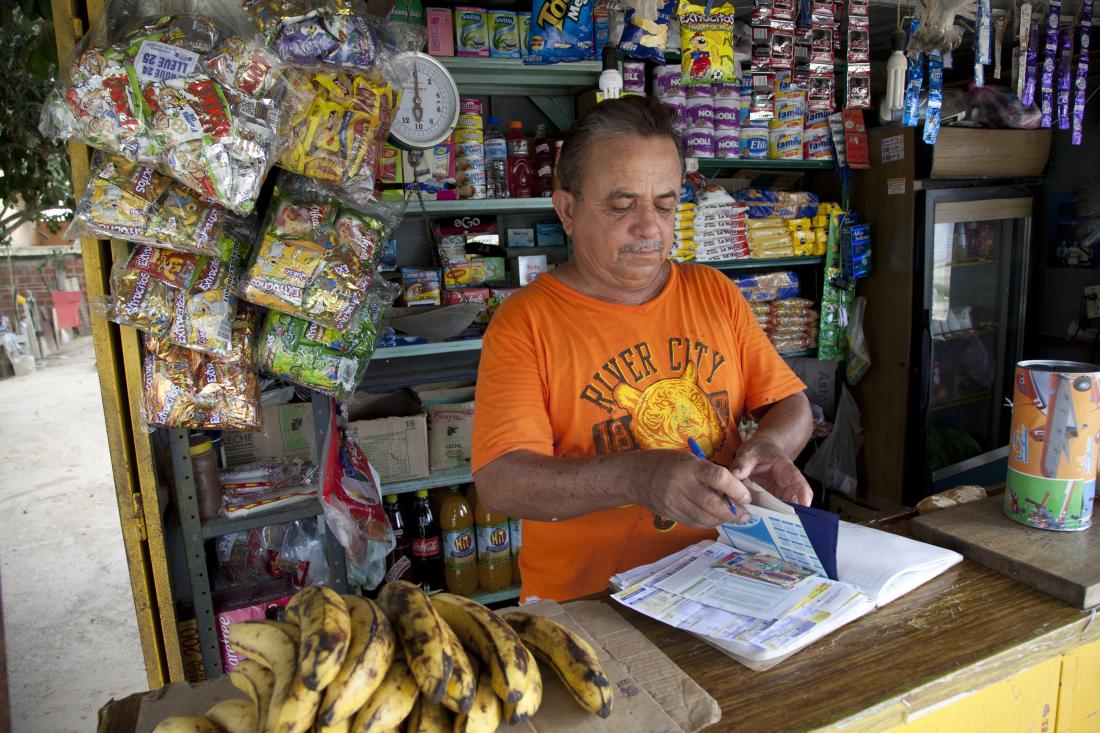The Impact of Loans on the Survival and Performance of Small and Medium Enterprises (SMEs) in Colombia
- Small and medium enterprises
- Employment
- Firm survival and sustainability
- Profits/revenues
- Credit
Small and medium enterprises (SMEs) represent an important source of employment in many low- and middle-income countries. Therefore, finding the most effective measures to help SMEs respond and recover when faced with economic crises, like those triggered by COVID-19, is of high policy relevance. In Colombia, researchers are evaluating the economic impact of providing stimulus loans to SMEs, distributed via the government’s COVID-19 relief program (“Unidos por Colombia”), on SME survival, profits, and employment.
Problema de política pública
Lockdowns and mobility restrictions imposed to slow the spread of the COVID-19 pandemic have impacted economic activity around the world. Small and medium enterprises (SMEs) have been particularly exposed to the slowdown of the global economy. Many SMEs not only lack sufficient resources to survive a significant decline in income, but also do not have the know-how to quickly turn to a remote operation or the ability to operate with limited input and labor. Globally, this has led many SMEs to close, leaving large segments of the population unemployed, particularly in low- and middle-income countries where SMEs are the main source of employment.1
To strengthen the resilience of SMEs and prevent them from closing, many governments have implemented economic support and stimulus programs that often include cash transfers and access to credit. Despite being a labor policy priority, there is little empirical evidence on whether these measures actually support SME employee retention during economic crises and support long-term growth and job creation. This study aims to fill this gap by evaluating the impact of loans offered to SMEs in Colombia as part of the COVID-19 relief program called “Unidos por Colombia”.
Contexto de la evaluación
In Colombia, SMEs represent 90 percent of enterprises in the country.2 Moreover, SMEs create more than 78 percent of jobs across the country and are the main type of enterprise in sectors such as commerce and services. Concerned about the impact of the pandemic on the economy, and in particular on SMEs and independent workers, the government of Colombia launched the program “Unidos por Colombia” in April 2020. The program, managed by the Fondo Nacional de Garantias, provides loans targeted to SME and self-employed workers. These funds can be used by SMEs to cover payroll expenses, purchase working capital, or pay self-employed workers. To date, more than 616,000 entrepreneurs have benefited from the credits.3

Detalles de la intervención
Researchers are measuring the impact of an electronic loan—offered as part of the Colombian government’s COVID-19 relief program—on the survival and performance of SMEs. In total, 3,428 SME customers of a Colombian bank called Davivienda were randomly assigned to participate in either a lending campaign or a comparison group.
- Lending campaign: In this group, 2,424 randomly selected SMEs were offered a loan for productive investment with a guarantee of 50 to 80 percent from the National Guarantee Fund.
- Comparison group: The remaining 1,004 randomly selected SMEs were excluded from the campaign but could approach the bank individually if they needed credit. The research team will use administrative bank data on card transactions, deposits, payroll, lending applications, and approvals to measure the impact of these credits on firm survival and recovery. This study is part of a regional project done in collaboration with the Inter-American Development Bank (IDB) to monitor the effect of the COVID-19 pandemic on the survival of SMEs in Latin America, and evaluate the impact of policies used to support entrepreneurs during this time.
Resultados y lecciones de la política pública
Research ongoing; results forthcoming.
Pierre-Olivier Gourinchas et al., “COVID-19 and SME Failures” (Cambridge, MA: National Bureau of Economic Research, September 2020), https://doi.org/10.3386/w27877.
Cámara de Comercio de Bogotá, “Registro Único Empresarial y Social (RUES),” accessed October 27, 2021, http://www.ccb.org.co/Inscripciones-y-renovaciones/Matricula-Mercantil/Registro-Unico- Empresarial-y-Social-RUES.
“Fondo Nacional de Garantías, Colombia,” FNG, 2021,
https://www.fng.gov.co:443/ES/Paginas/Asi_Vamos_Unidos_por_Colombia.aspx.